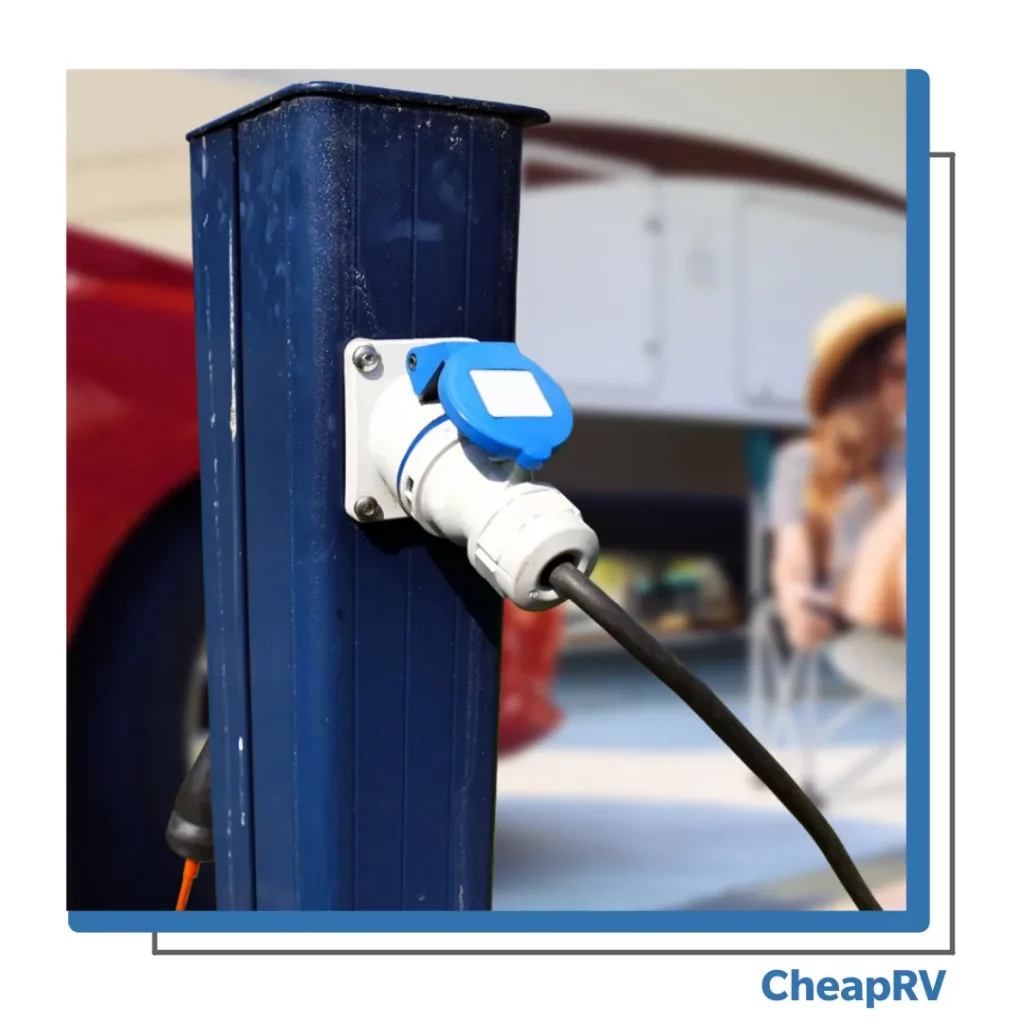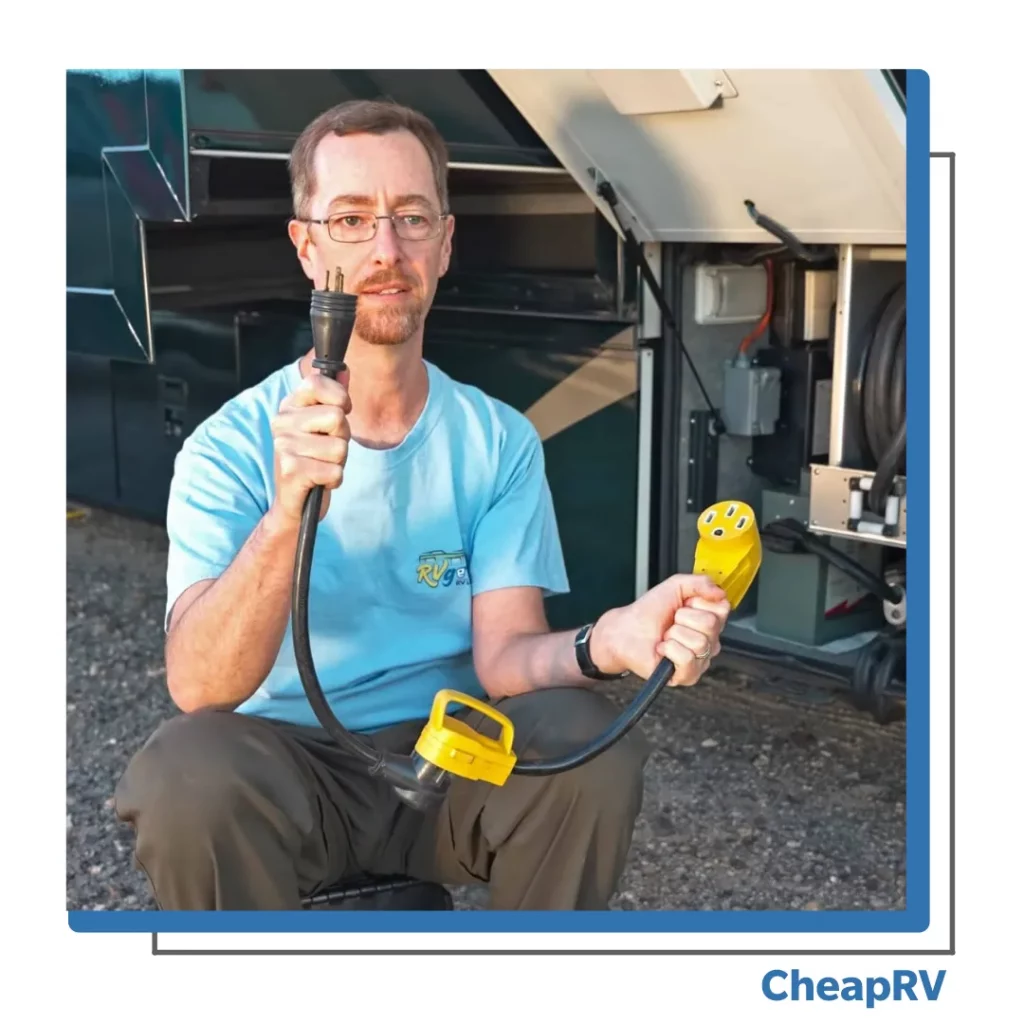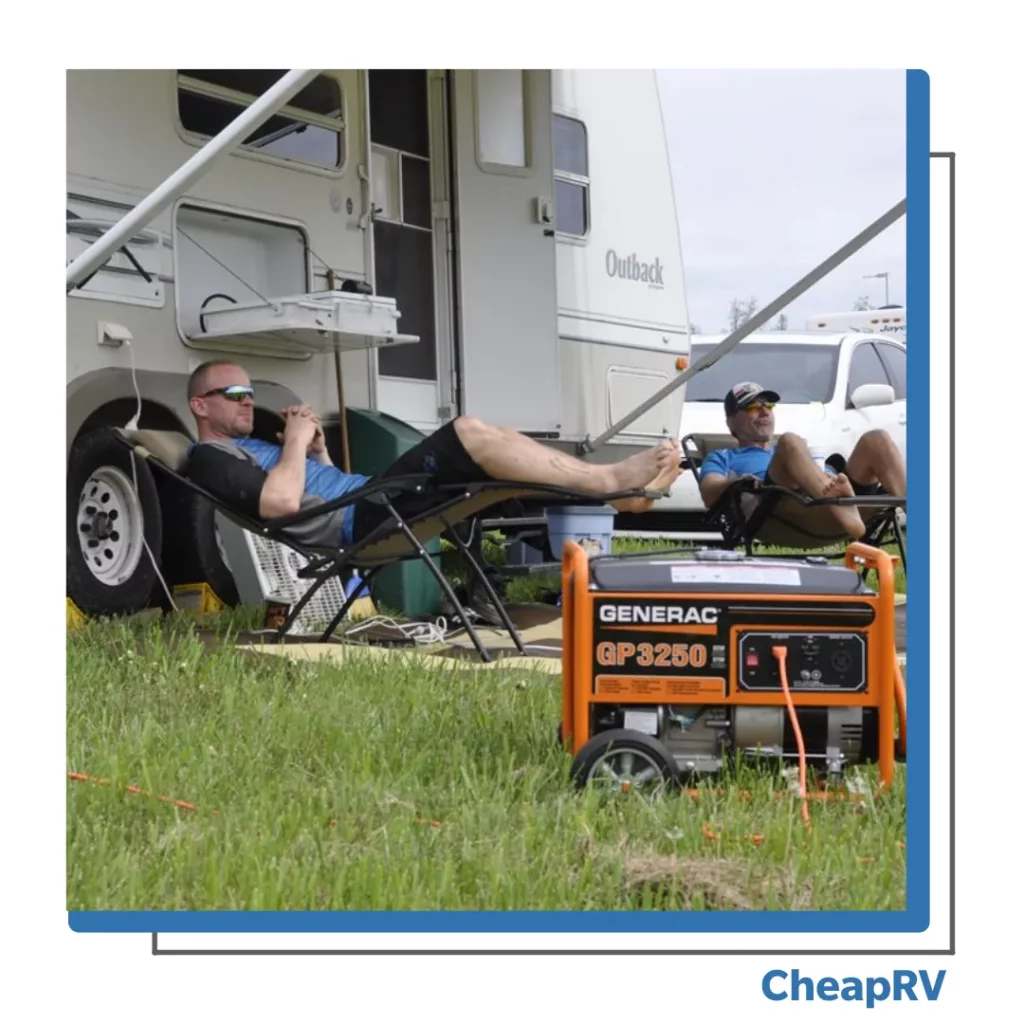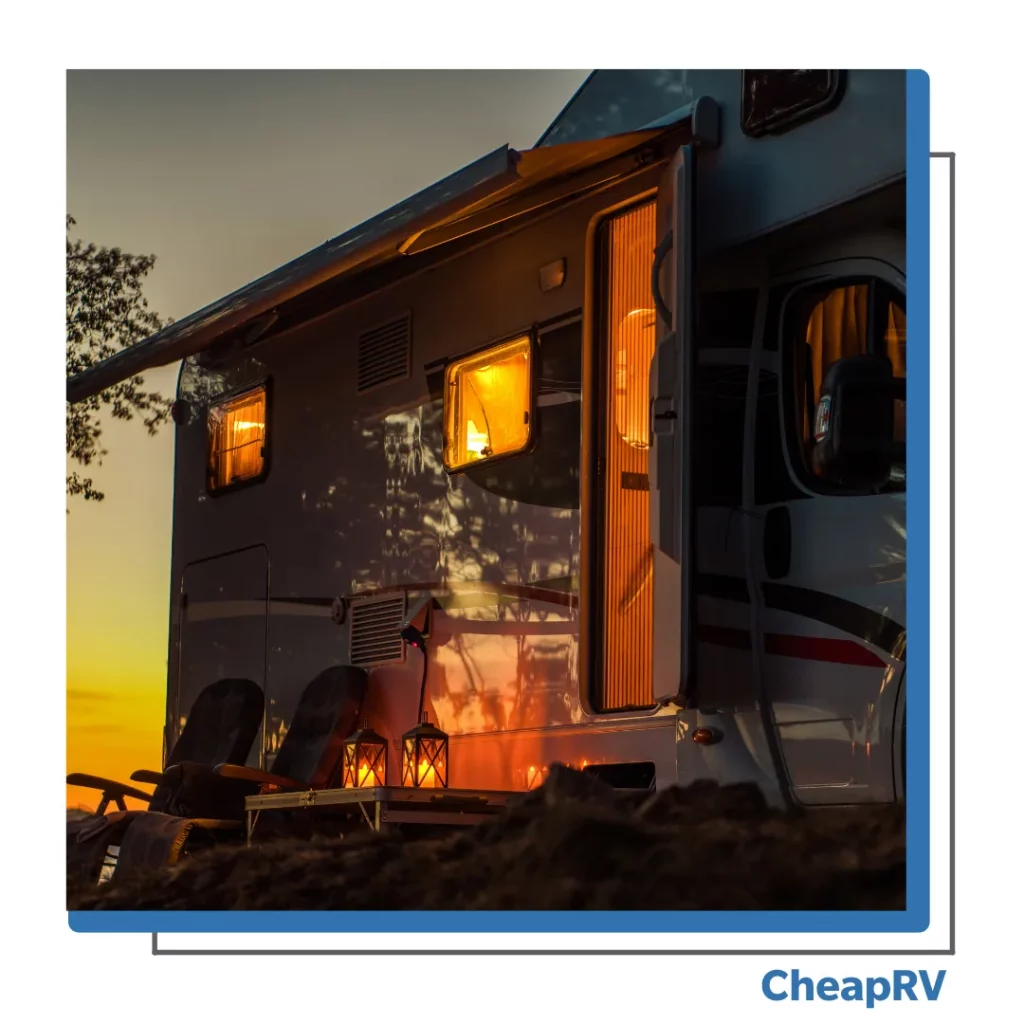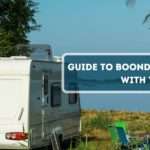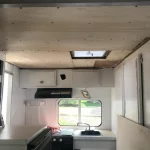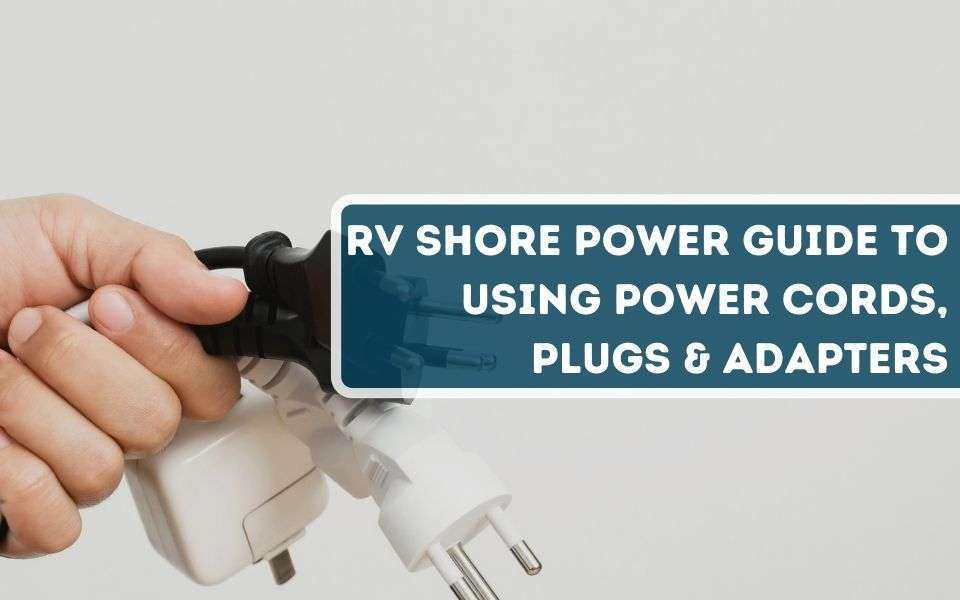
How To Use Power Cords, Plugs, and Adapters in Your RV With Shore Power
RV Shore power is using the RV Park and campground’s power supply, and one of the most difficult parts about owning an RV is navigating the electrical system.
RV owners mainly power their RVs using shore power, solar power, and portable generators.
Mishandling RV electricity can cause severe injury, so you need to learn about shore power and electrical cables before your RV trip. Learning about the voltage in your RV and how your power works are crucial for a successful trip.
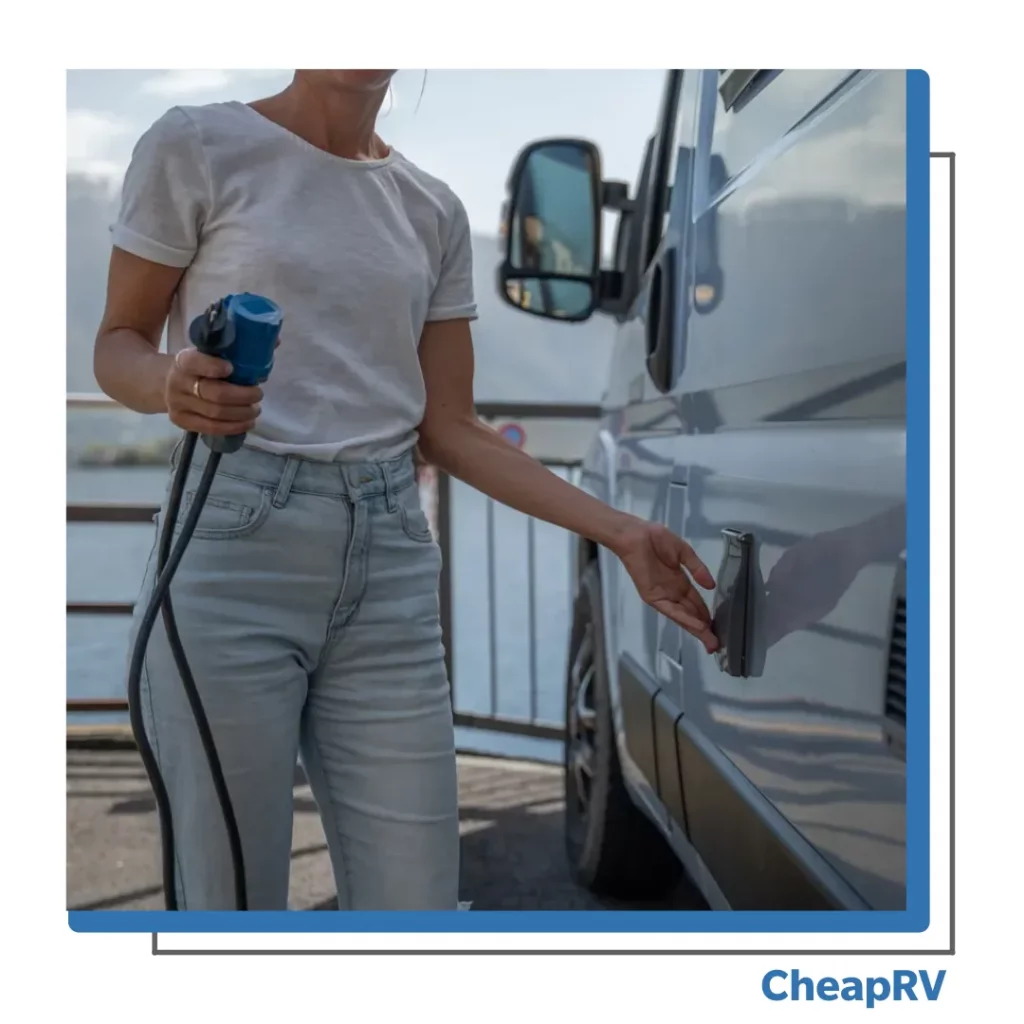
Please continue reading to learn everything you need to know about shore power and the chords you’ll need in your RV. We will discuss shore power, extension cords, power adapters, and anything else you need to know about powering your RV.
Understanding Shore Power
Shore power is the most common way campers and RV enthusiasts power their RVs. This power is the electricity you receive from the campground or RV park you visit and works similarly to your home. These power pedestals supply your RV with 120 volts of AC power.
Differences Between 30 AMP and 50 AMP RVs
If you own an RV, you likely have a 30- or 50-amp power system. These are the most common power systems RVs have, and you need to know the difference between the two before hooking your RV up to shore power.
- A 30 amp RV can run a maximum of 3600 watts and has a single electrical circuit that you can attach to shore power.
- A 50 amp RV has two electrical circuits that you can attach to shore power, in this RV runs a maximum of 12,000 watts.
The best way to discover how many amps your RV has is to look at the power cords. For example, if you have a 30 amp RV, your electrical circuits accommodate three-prong cords. However, if you have those 50 amp RV, it will accommodate four-prong cords.
You can also figure out how much power your RV can accommodate based on the size of the vehicle. For example, smaller RVs usually run on a 30-amp system, while larger RVs usually run on a 50-amp system.
A 30-amp RV is fantastic for running small appliances like microwaves, coffee makers, and laptops.
However, if you’re taking the entire family on the road and plan to use multiple small appliances at once, you’ll want to invest in a 50-amp RV. This allows you to run the coffee maker, the dryer, and the microwave simultaneously without power interruptions.
RV Shore Power and Extension Chords
The cord used to power your RV with shore power is a heavy-duty extension cord. These cords operate with 30 to 50-amp RVs.
You’ll need to invest in an extension cord that can carry 30 to 50 amps of power to your vehicle. A standard extension cord cannot accommodate this power demand.
When looking for a power cord for your RV, you’ll want to invest in a 20 to 30-foot option to ensure you can connect your RV to shore power anywhere you go. If you purchase a cord that’s too short, you’ll encounter situations where it can’t reach the power supply.
Puck and Dog Bone Adapters
You should always bring power adapters when you travel with your RV to ensure that you can provide power. For instance, not every campground offers 30 to 50-amp hookups, so you’ll need an adapter to accommodate your electrical needs.
Puck and dog bone adapters allow you to adjust the shape of your power supply to connect it to a campground. However, this adapter will not adjust the amount of power supplied to your RV; it only allows you to use the power available supplied by the campground.
Puck adapters are cheaper than dog bone adapters but don’t provide as secure a connection. Puck adapters also have a heat-up problem, making them difficult to use while camping.
If you’re unsure whether a campground can meet your power needs, you should call them ahead of time and ask them if they have 30 to 50-amp power supplies. Calling ahead can help you avoid going without power during your camping trip.
Surge Protectors, Analyzers, and Voltmeters
It would help if you learned the basics of connecting your RV to shore power to ensure you wire everything correctly and avoid power surges. If you neglect to inform yourself of the power demands of your RV before your trip, you could risk permanent RV damage.
Surge Protector
If you own an RV, purchasing a surge protector is necessary. This device will protect your RV from experiencing voltage spikes so you can avoid power surges. You’ll need to choose the proper surge protector to accommodate your RV because they come in different voltages.
Multimeter
You can use a multimeter to diagnose electrical issues in your RV. This is the easiest way to check your power voltage to know if the plugin is safe.
Volt Protector
A Volt protector is the best way to prevent overheating through your RV. If your RV’s power supply dips below the required voltage you need to remain safe; then the voltage protector will automatically disconnect your RV’s electrical units.
These voltage protectors are a fantastic way to keep your RV’s electrical system in peak condition.
Circuit Analyzer
You can use a circuit analyzer to determine whether or not a campground power supply is safe for your RV. These circuit analyzers come with a built-in surge protector, so your electronics don’t become damaged if there’s an unexpected voltage spike.
Power Your RV With Shore Power
Follow the steps below to power your RV with shore power safely:
- Use the breaker switch on the power pedestal to start the power
- Check the voltage in the power pedestal to ensure it’s up to par
- Plug in your surge protector
- Connect your RV accord to the surge protector
- Plug in your RV
This is the best way to protect the appliances in your RV in case the shore power experiences a spike. The last thing you want to worry about is purchasing new appliances when you hit the road.
Final Thoughts About Shore Power
If you want to power your RV on a camping trip, then shore power is the most typical way to complete this task.
However, it would help if you took protective measures to ensure that you don’t damage the electronics in your RV. Always use surge protectors when you use shore power on your RV trip.
Shore power is the most common way RV owners bring electricity to their RVs, and following this guide is the best way to keep your RV electricity safe.
